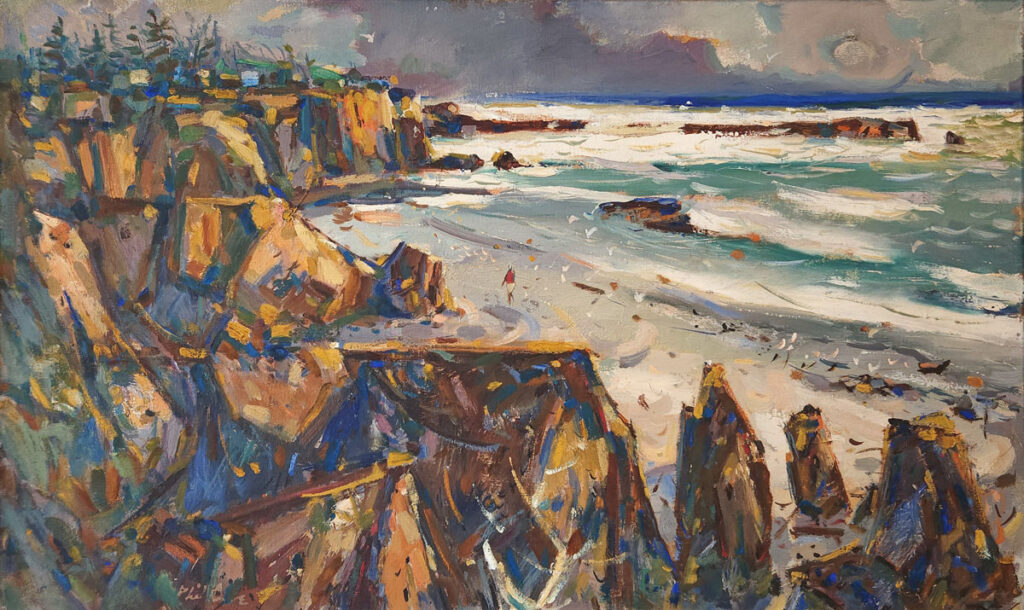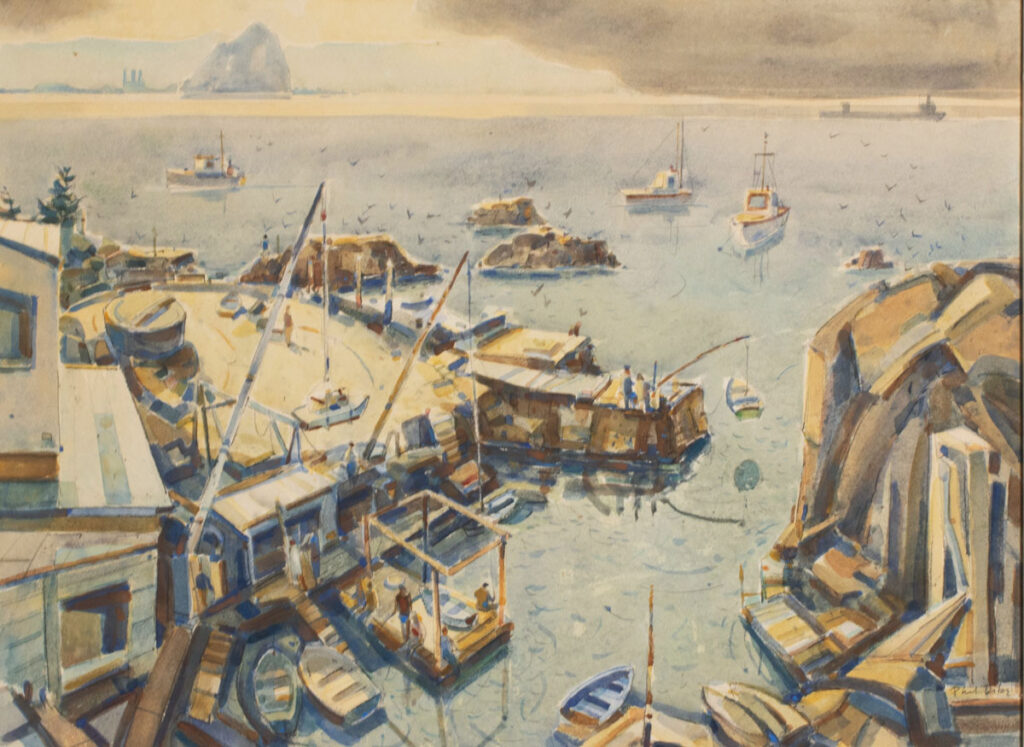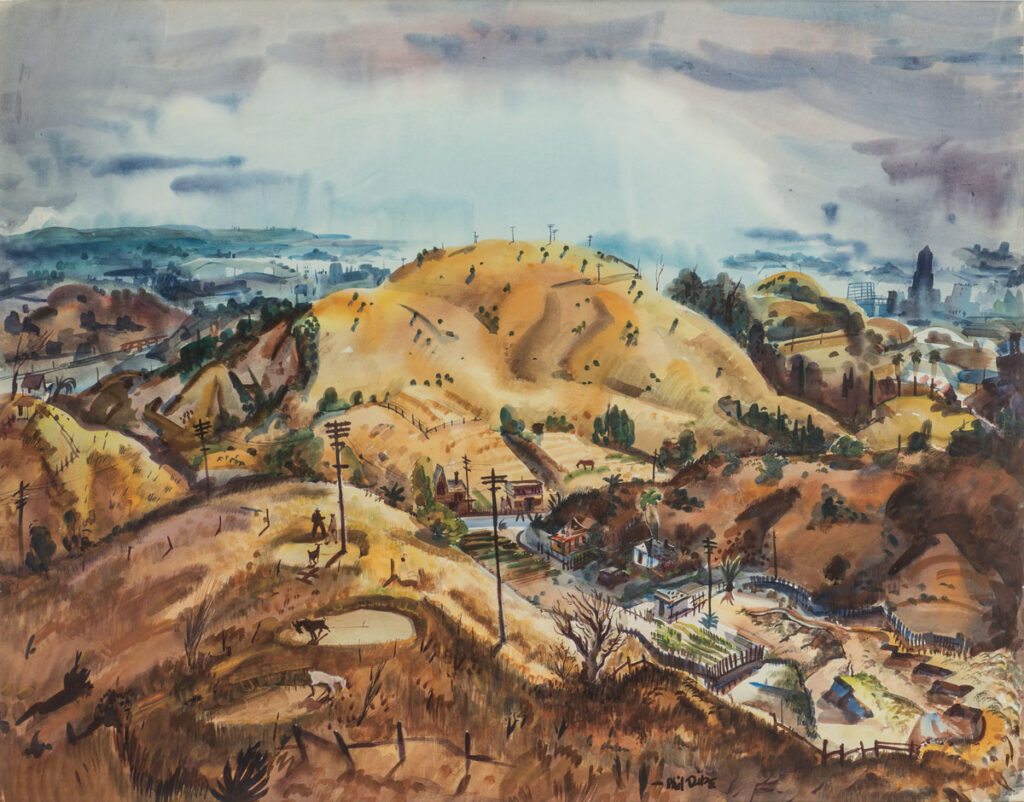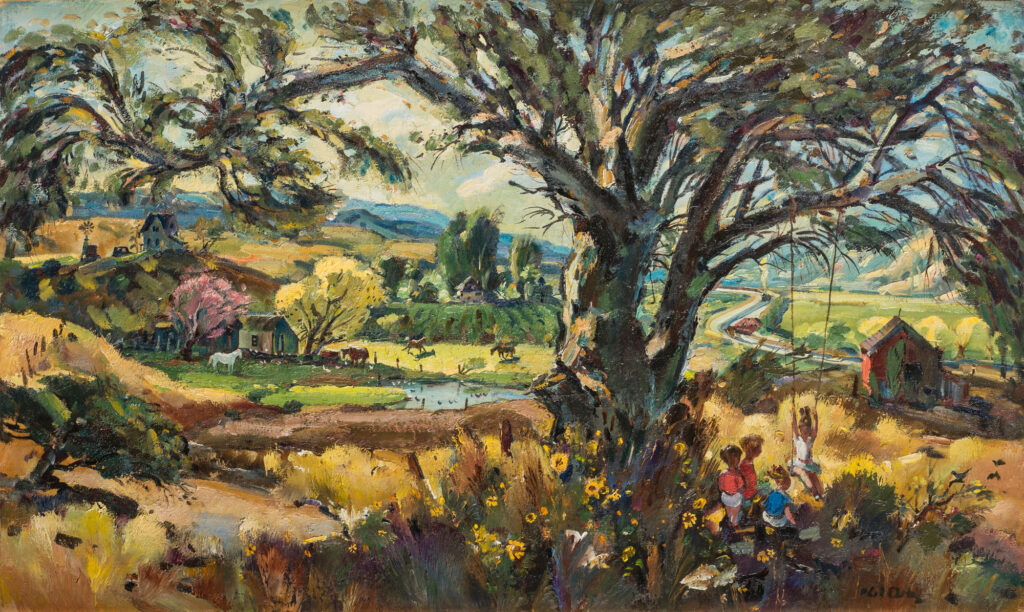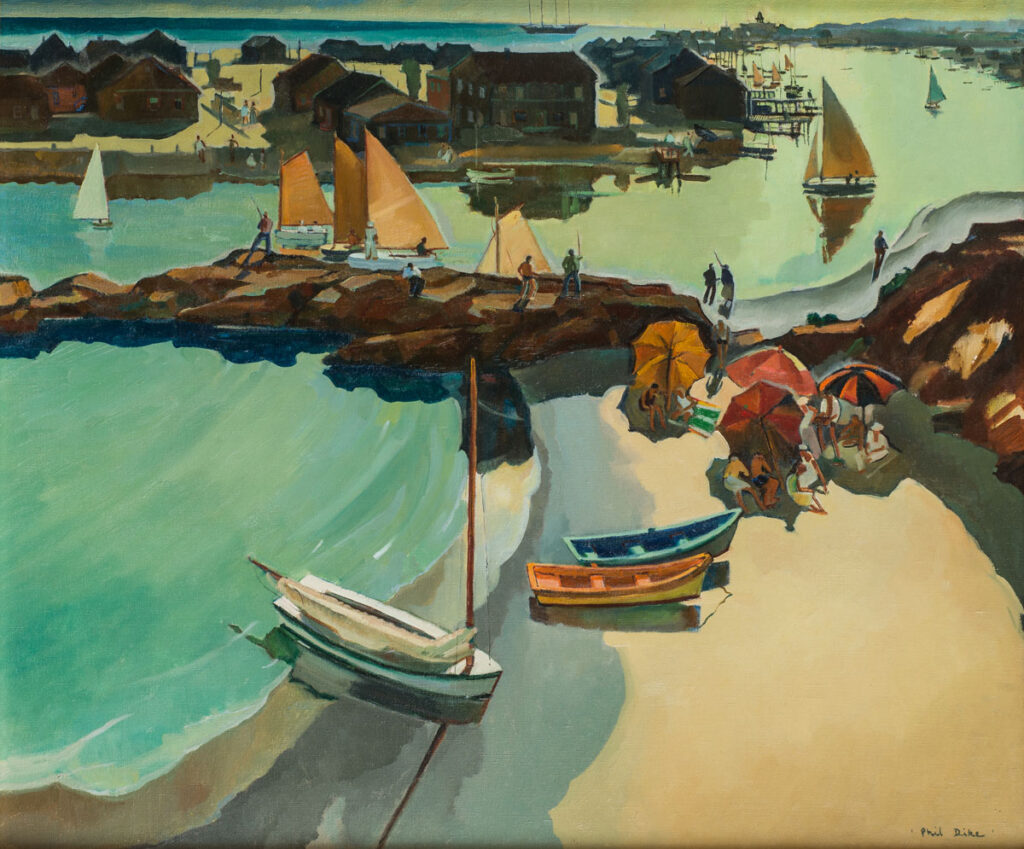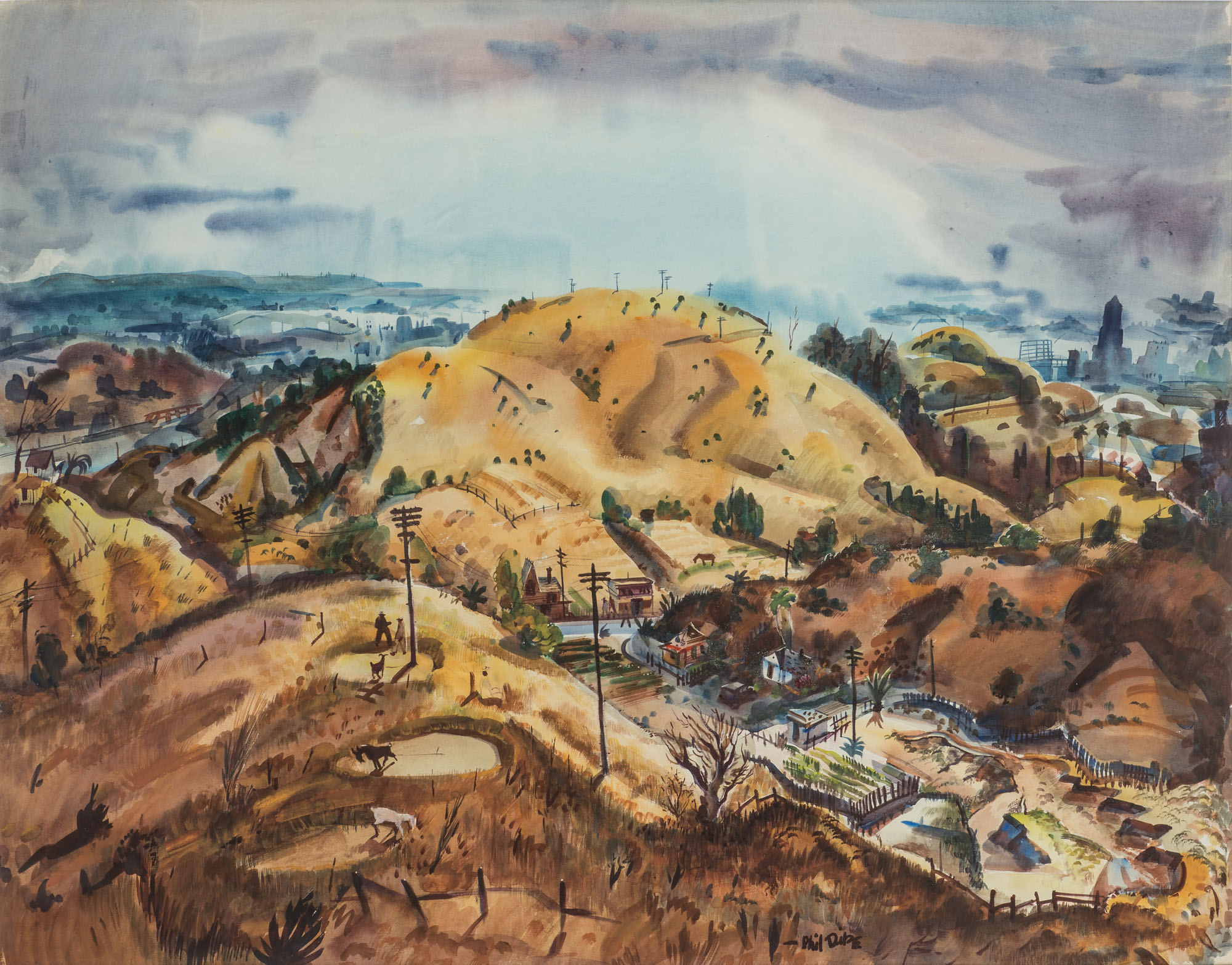Past Exhibition
Phil Dike: A Bird’s Eye View
Member Preview: Saturday, September 7, 5-6 pm
Public Opening: Saturday, September 7, 6-9 pm
Art Walks, 6-9 pm: September 7, October 5, November 2
Phil Dike: A Bird’s Eye View will present a fresh look at the work of one of Claremont’s most renowned painters from the last century. An influential and admired teacher to hundreds of students, Dike was best known for his coastal scenes and his raw confident brushstrokes. The exhibition presents significant works from his favored high point of view as well as his abstract approach to California scenes.
The exhibition is generously sponsored by Gould Asset Management LLC, with essential support also provided by Sandra and Bram Dijkstra, and Beth Booth Gertmenian.
The Exhibition
Phil Dike: A Bird’s Eye View features four seminal works (among others) by Phil Dike that evoke a high vantage point perspective of an object or location, creating the illusion of looking down from the viewpoint of a flying bird. The images convey a sense of observing from above, creating a feeling of divine observation and distance from the subject matter. This type of perspective has been popular since ancient times and gained significance in the mid-to-late 19th century in the United States and Europe through photographic prints. Dike was introduced to this perspective by the New York Social Realist artists he associated with, and possibly by the artists he met in Europe.
The Artist
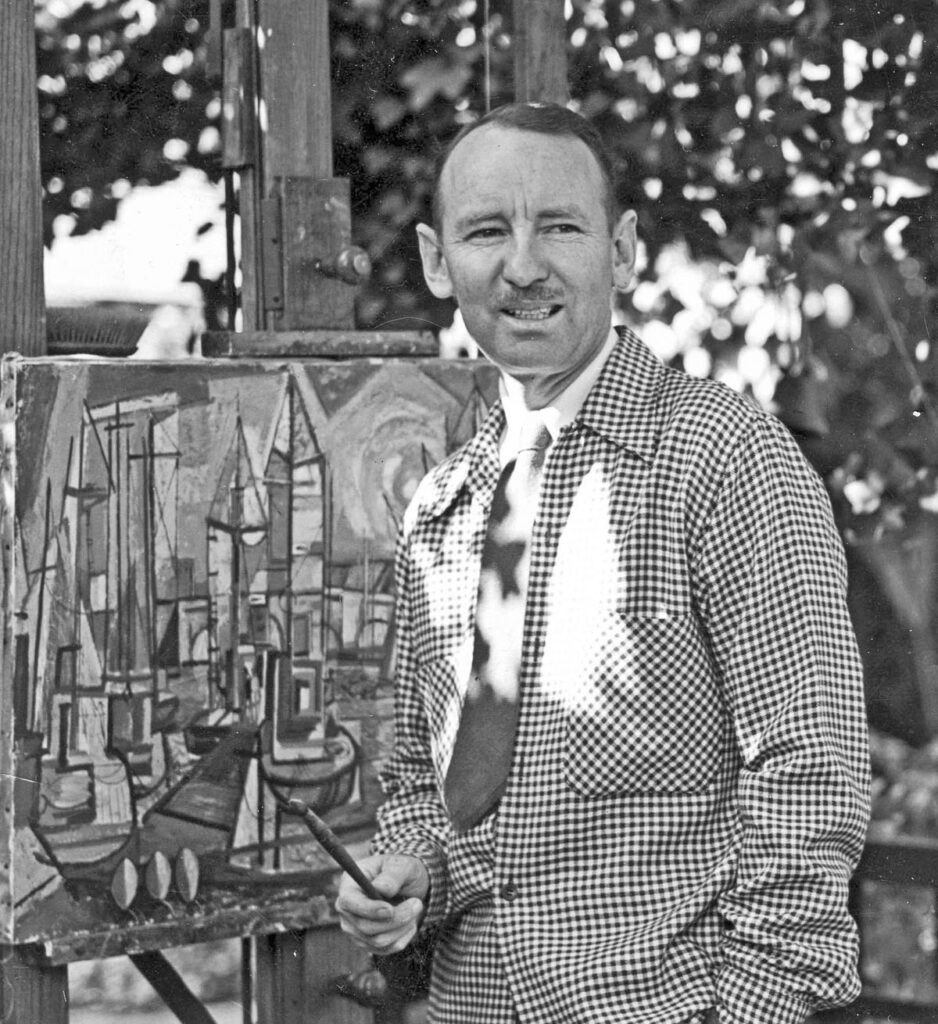
Phil Dike was born and raised in Redlands, California, and attended the Chouinard School of Art in Los Angeles from 1924 to 1927. In 1929, Dike traveled to New York to study at the Art Students League and, also spent time in Ash Can School artist George Luks’s (1867–1933) studio. After returning to Los Angeles, he taught at Chouinard for a year before traveling to Europe to study in France at the American Academy of Fontainebleau. He resumed teaching at Chouinard in 1931 and between 1935 and 1945, he was a color coordinator and story designer for Walt Disney Studios.
Dike was a prominent figure in the California regionalist movement of the 1930s and 1940s. He was a close friend of the artist Rex Brandt, and together they established the Brandt-Dike Summer School at Brandt’s home in Corona del Mar. In 1950, Dike became a faculty member at Scripps College and Claremont Graduate University. Over time, his artistic style shifted from realism to a more abstract approach. By the 1960s, his work, while never truly non-representational, tended towards total abstraction, conveying a strong sense of mysticism. Additionally, Dike was a poet who lived by the mantra: “Whenever art becomes predictable, it is something apart from art.” Following his retirement in 1970, he lived in both Claremont and Cambria until his passing in 1990.
The Installation
The exhibition is arranged into three unique sections, each offering a different artistic experience: The McIntosh gallery houses artwork that vividly depicts specific times and places, providing a glimpse into different historical and geographical settings. The middle gallery showcases an impressive collection of artworks employing the “Bird’s Eye View” perspective, offering viewers a captivating and unique vantage point. The last gallery features a diverse selection of works sourced from local and regional collections, offering a rich tapestry of artistic styles and influences.
The exhibition is generously sponsored by

with essential support also provided by Sandra and Bram Dijkstra, and Beth Booth Gertmenian.
Gallery
